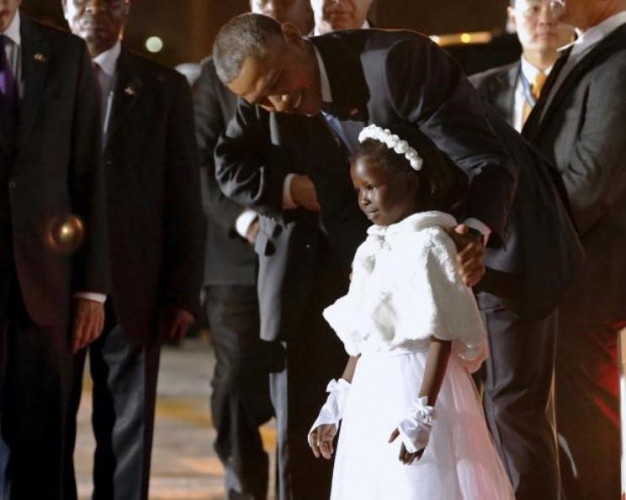
As Barack Obama descended the steps of the Air Force One on Friday evening and stepped on Kenyan soil for the first time as President of the United States, a little girl waited on the sidelines, her instructions probably memorised. At the right moment, perhaps prompted by her chaperon, she stepped forward and presented a bouquet of flowers to "the most powerful man on earth" and made history as the first person to welcome him to Kenya.
As Obama scooped the bouquet in his hands, he bent down to eight-year-old Joan Wamaitha's level and made eye contact with her while whispering something to her. Then he took her in his arms and gave her a warm hug.